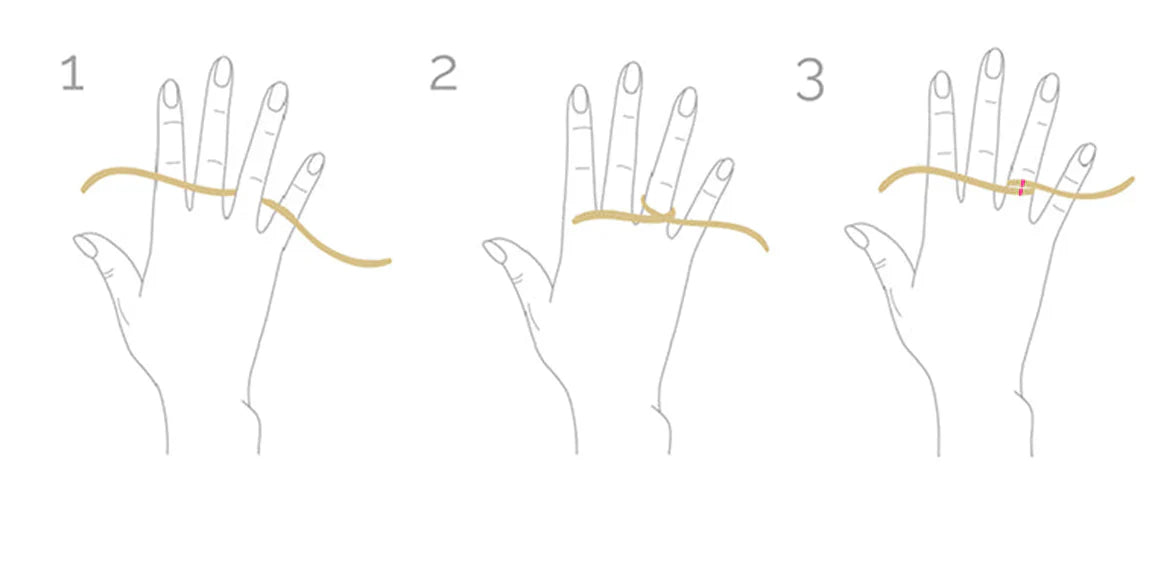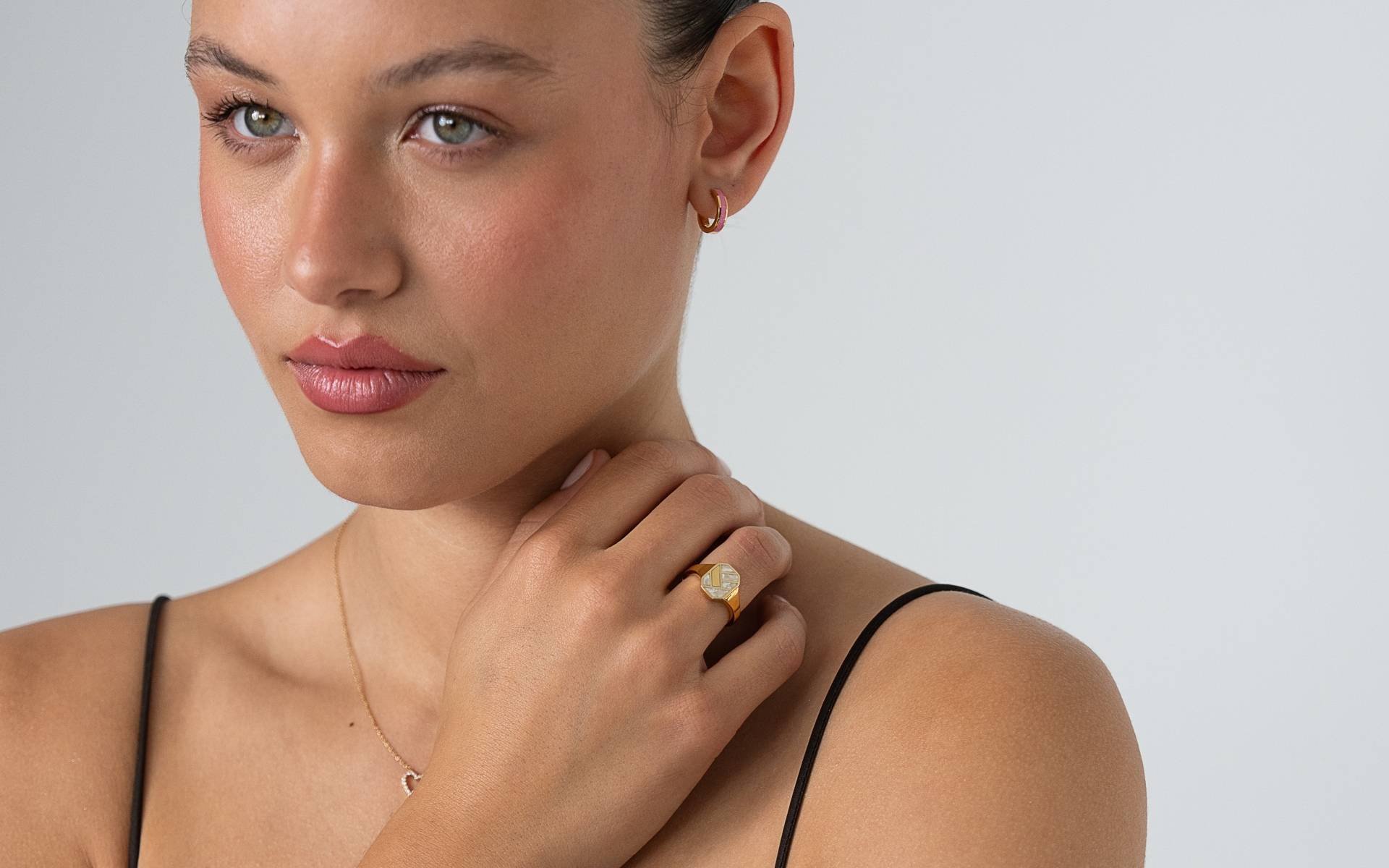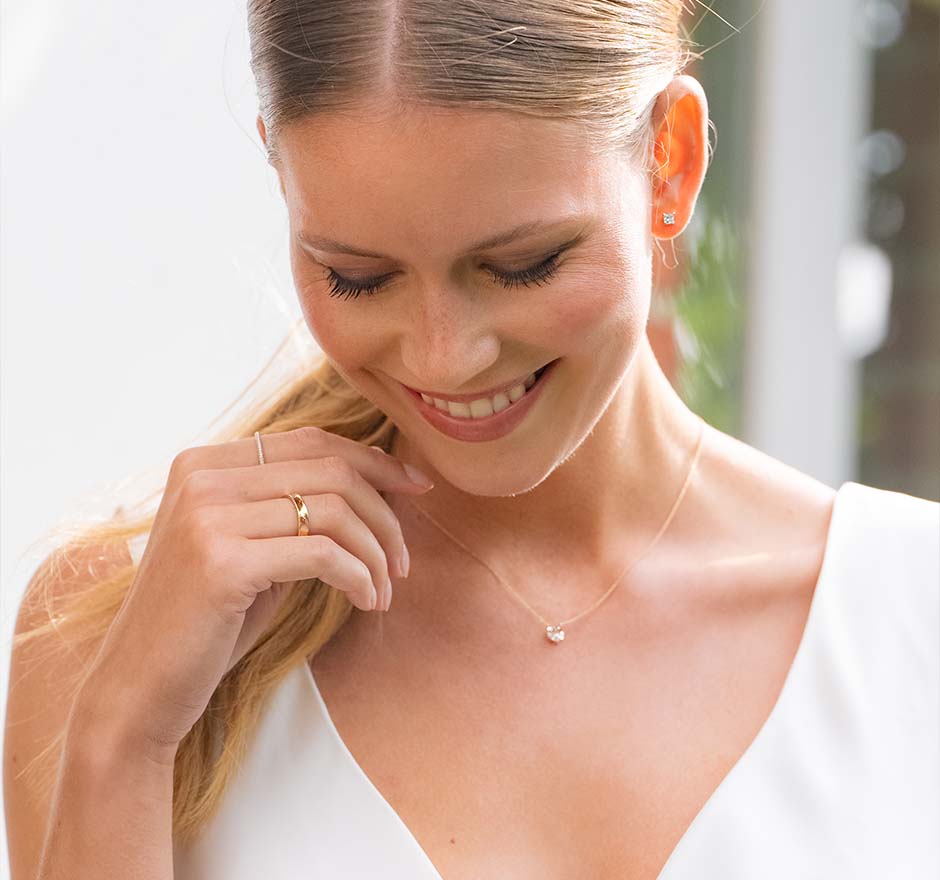Does Saltwater and Chlorine harm Jewelry?
find out how to look after your favorite pieces of jewelry properly in summer
The beach vacation is planned and the pool is waiting, but should the jewelry be worn in the water? The question often arises as to whether jewelry can be worn at pool events without any problems? Or whether it is even harmful to wear your wedding ring while swimming in the sea as usual? The truth is that your precious pieces will be grateful if you give them a little break for these occasions. Because aside from the potential danger of your jewelry slipping off and getting lost in the water, there are a few other reasons why a day at the beach or pool can be damaging.

sun, sand and salt can damage the metal
Contact with salt water and sand can lead to erosion of the metal layer of the jewelry. Gold is naturally a soft metal and cannot be formed into jewelry on its own. It is therefore mixed with other metals, such as copper, to transform it into a harder metal. Copper reacts very strongly with salt, making the jewelry vulnerable. The more copper is used in the gold, the more susceptible the jewelry becomes. For example, 14-karat gold is more susceptible to erosion than 18-karat gold. Exposure of this kind over a longer period of time weakens the precious metal - decomposition occurs. This leads to discoloration of the metal and increases its susceptibility to breakage. Gold-plated silver pieces are particularly at risk if they come into contact with salt water, as the water causes the gold coating to tarnish over time. The golden appearance fades more quickly and the silver under the gold coating becomes visible. It is therefore advisable to use our Fine line made of solid gold, as solid gold is much less susceptible to erosion and is generally more durable than gold-plated silver pieces.
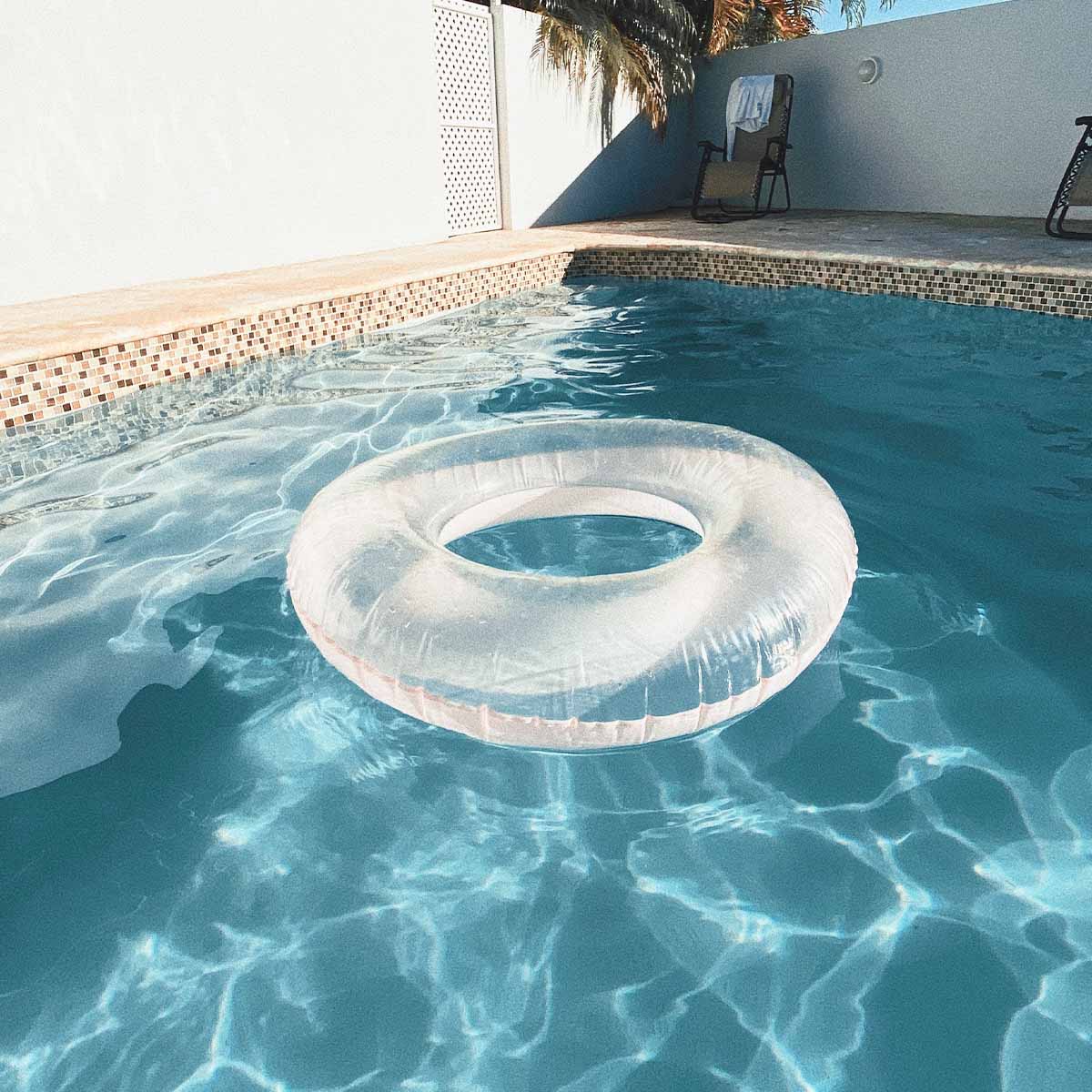
how does chlorine affect jewelry?
The chlorine in the swimming pool can not only lead to discoloration, but also to so-called corrosion:
The chlorine may react with the metals that are mixed with the gold and can lead to decomposition. This could damage your engagement ring and cause the diamonds or gemstones it contains to fall out of the setting.
To find the ideal diamond for your engagement ring, our blog post Tips for buying diamonds will certainly help you. Or simply book a personal consultation with us directly.
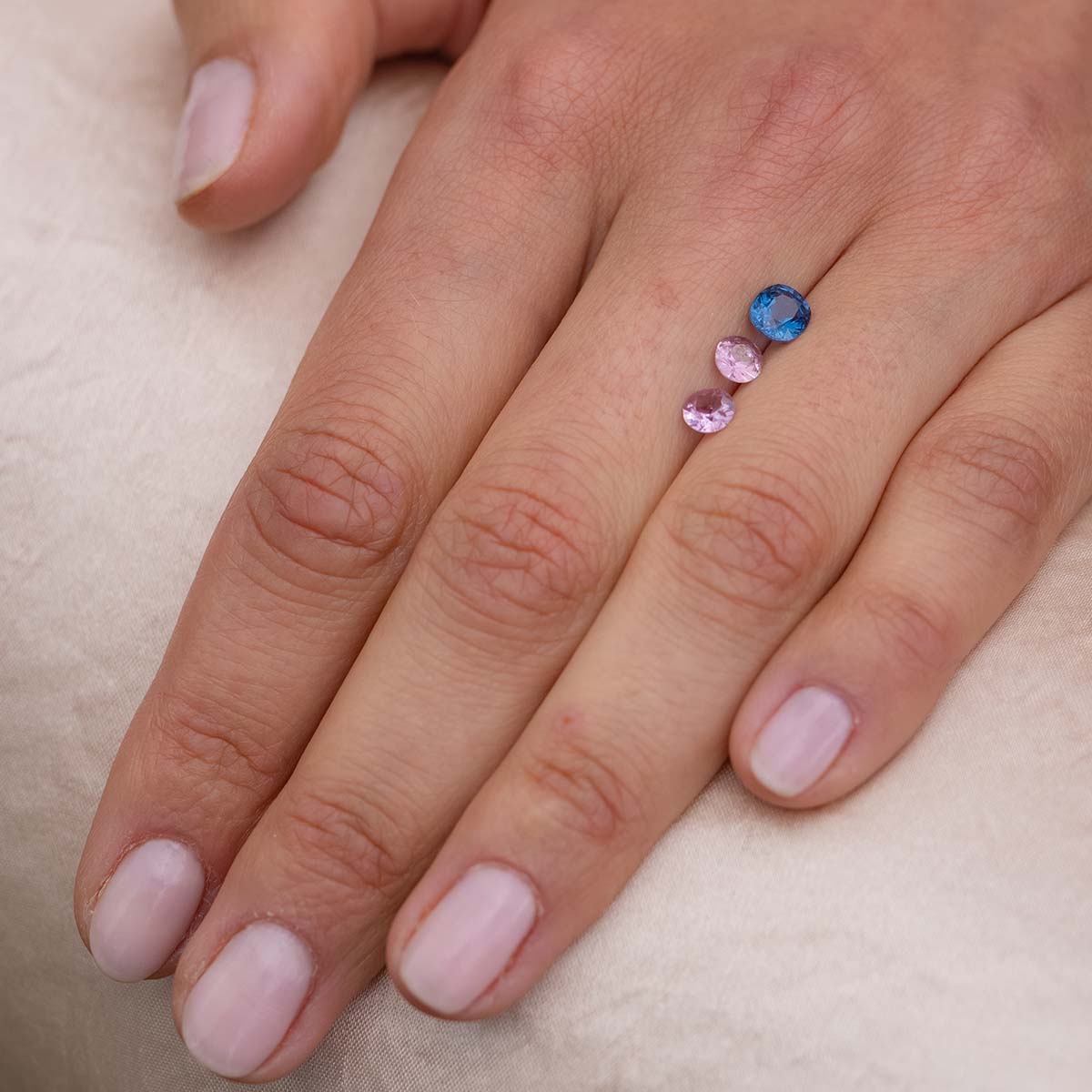
What about the gemstones?
Not only the metal, but also gemstones are susceptible to discoloration when exposed to salt water or chlorine. Damage to the facets and gemstones themselves is a particular problem. Stains on the facets can make the stone appear dull and less shiny, giving it a "dirty" appearance. With softer stones, such as amethysts or citrines, sand can abrade the surface. This makes them appear rough and lifeless. Be careful, because all this applies even more to fake gemstones, which are often made of glass. It is therefore advisable to choose jewelry with real gemstones. Fortunately, we at Pukka Berlin work exclusively with real gemstones, so take a look at our pieces with diamonds, sapphires,rubies andmoonstones.
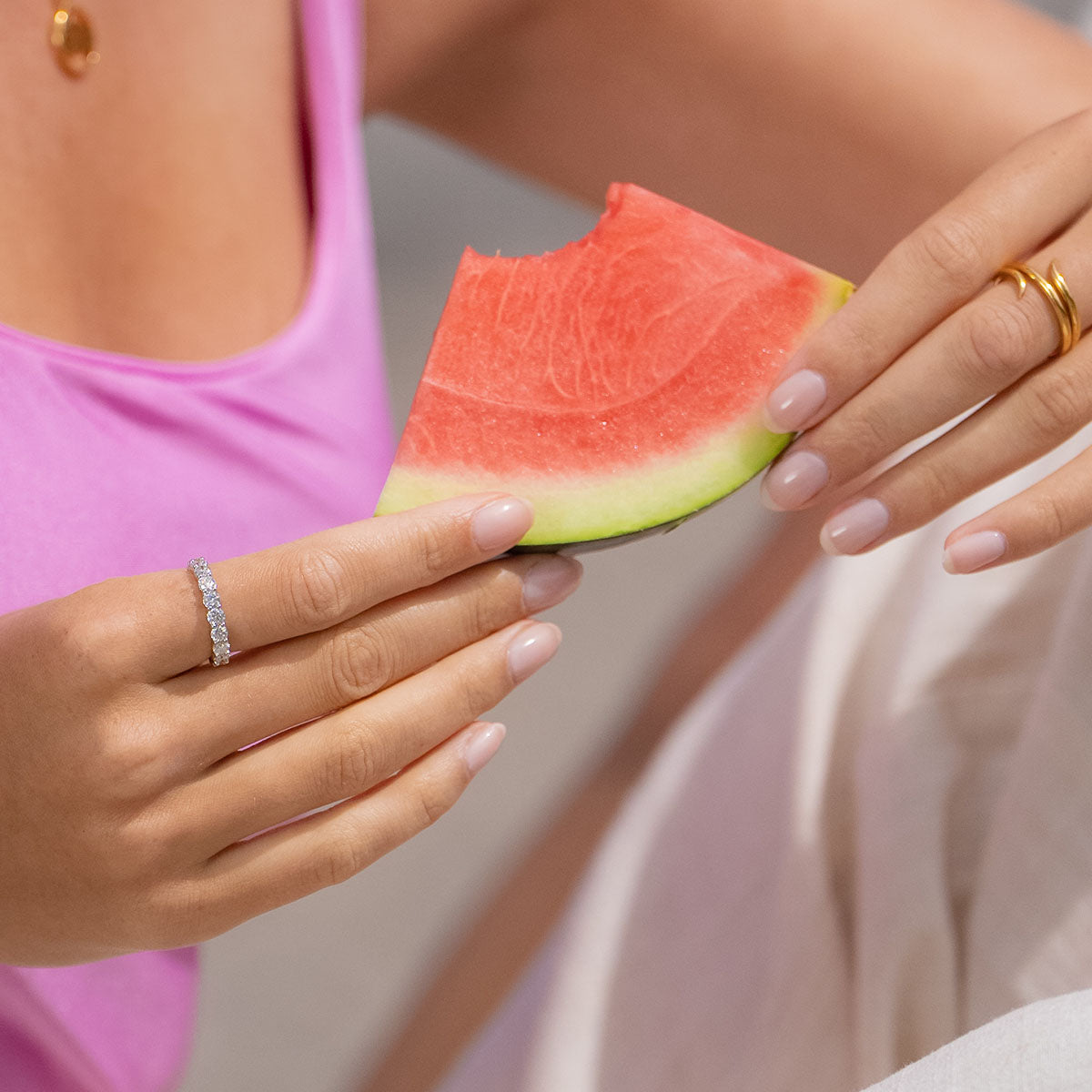
tips for maintaining the natural shine of jewelry
After a day at the beach or pool, clean your jewelry with either a soft, damp cloth to wipe away salt and sand residue. Even better is to wash your jewelry as soon as possible with a combination of water, gentle soap and a soft brush. You can find tips on cleaning jewelry in our blog post Cleaning jewelry. Jewelry should also be inspected and professionally cleaned by a jeweler from time to time. If you follow these tips, you can enjoy your day at the beach without a second thought. So: Happy vacation!



